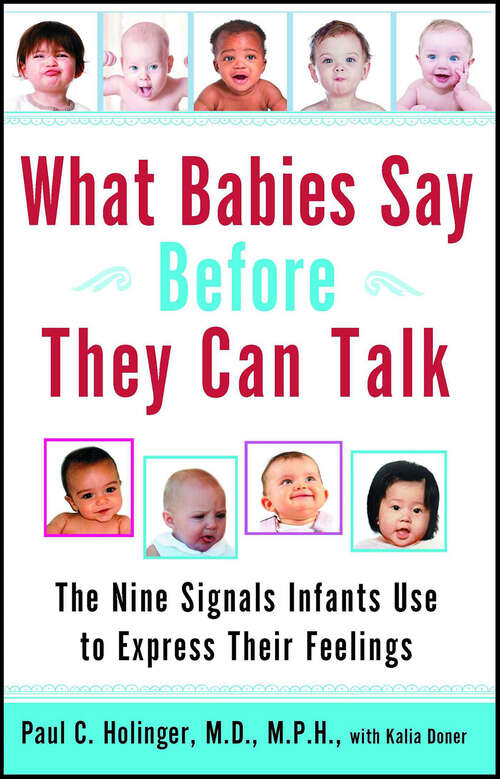What Babies Say Before They Can Talk: The Nine Signals Infants Use to Express Their Feelings
By: and
Sign Up Now!
Already a Member? Log In
You must be logged into Bookshare to access this title.
Learn about membership options,
or view our freely available titles.
- Synopsis
- In What Babies Say Before They Can Talk, psychiatrist and psychoanalyst Paul C. Holinger, M.D., M.P.H., a explains how infants communicate with us, and we with them, and outlines the nine easily identifiable signals that will help you to decode your baby&’s needs and feelings.Dr. Holinger decodes the nine easily identifiable signals—interest, enjoyment, surprise, distress, anger, fear, shame, disgust (a reaction to bad tastes), and dissmell (a reaction to bad smells)—that all babies use to express their needs and wants. These insights will aid parents in discerning what their baby is feeling. This book can help all parents become more confident and self-aware in their interactions with their children, create positive communication, and put the joy back into parenting.This is a unique work. It provides a foundation for understanding feelings and behavior. Based on emerging research, What Babies Say Before They Can Talk offers parents a new perspective on their babies' sense of the world and the people around them. The goal of this book is to help parents enhance their infants' potential, prevent problems, and raise happy, healthy, responsible children.
- Copyright:
- 2003
Book Details
- Book Quality:
- Publisher Quality
- Book Size:
- 288 Pages
- ISBN-13:
- 9781439123812
- Related ISBNs:
- 9780743406673
- Publisher:
- Simon & Schuster
- Date of Addition:
- 04/16/24
- Copyrighted By:
- Kalia Doner, Paul Holinger
- Adult content:
- No
- Language:
- English
- Has Image Descriptions:
- No
- Categories:
- Nonfiction, Parenting and Family, Psychology
- Submitted By:
- Bookshare Staff
- Usage Restrictions:
- This is a copyrighted book.
- With:
- Kalia Doner
Reviews
Other Books
- by Paul C. Holinger
- by Kalia Doner
- in Nonfiction
- in Parenting and Family
- in Psychology
